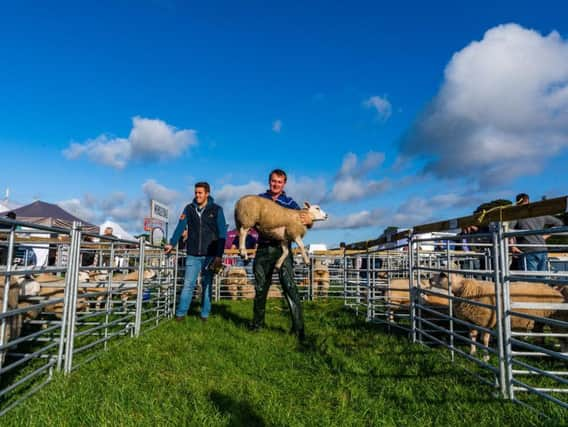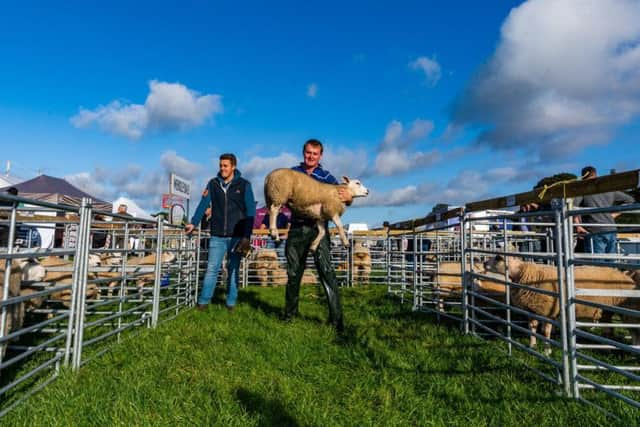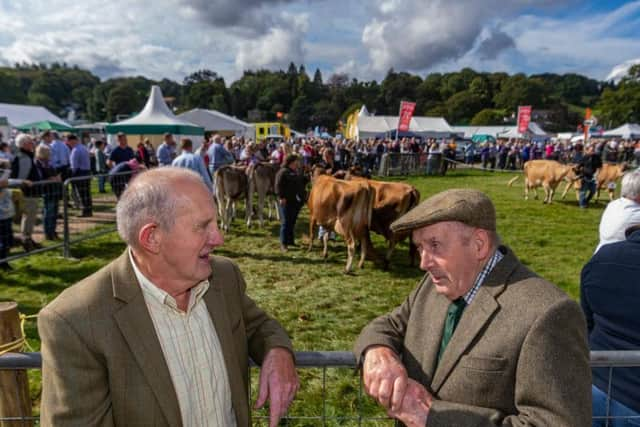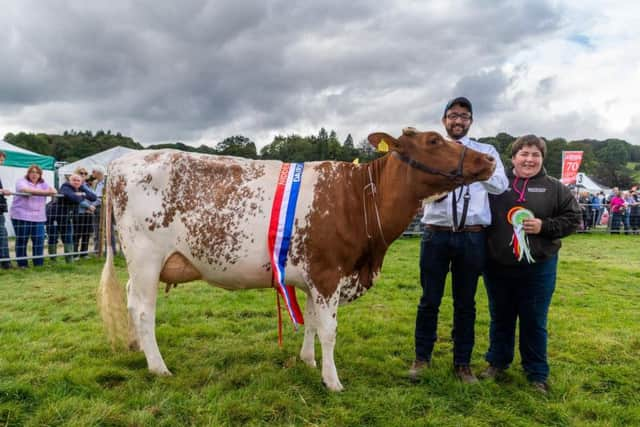Warning over delicate farm futures at Nidderdale Show
This article contains affiliate links. We may earn a small commission on items purchased through this article, but that does not affect our editorial judgement.


Launched at Nidderdale Show in Pateley Bridge by the National Farmers’ Union and a partnership of upland farmers and conservationists, the report urges policy-makers to spell out the value of the ‘public goods’ that upland farmers produce so that businesses can plan for the future.
The Government has proposed a system of paying farmers for delivering public goods - such as wildlife habitats, clean rivers and access to the countryside - to replace current support payments under the European Union’s Common Agricultural Policy, but farmers lack detail on what these goods will be worth.
Advertisement
Hide AdAdvertisement
Hide AdTeesdale farmer Richard Betton, a board member of the Northern Upland Chain Local Nature Partnership which commissioned the report, said: “Upland farmers are able to produce loads of public goods.


“What we urgently need to agree now is how much these public goods are worth, so farmers can plan for the future.
“Farming, in its present state, without support payments is not sustainable. This show, the stock breeding, will not continue unless we find a way to recompense farmers for what they do.”
Advertisement
Hide AdAdvertisement
Hide Ad

With farm futures unresolved, businesses are in a “tricky” position going into the autumn, said Mervyn Liddle, chairman of Pateley Bridge Auction Market.
“There is a lot of indecision. People are waiting to see what will happen,” said Mr Liddle, who reported that the price paid for sheep at Saturday’s breeding sale was down by £10 per head compared to this time last year.
Advertisement
Hide AdAdvertisement
Hide AdThe uncertainty seemed to have no effect on the overall mood at yesterday’s show however, with visitors and exhibitors seemingly intent on enjoying themselves as the summer show season drew to a close. In the livestock section, the show’s supreme dairy champion was a three-year-old Dairy Shorthorn heifer, Churchroyd Heather 107, shown by Tom Saxby on behalf of IRG Collins and Partners from Dewsbury.


In reserve was the show’s best local dairy animal, a five-calf Holstein shown by Gavin Clarke of Brimham Lodge.
The supreme beef champion rosette was presented to Mark and Tracey Severn of Barkisland, Halifax, for their Beef Shorthorn bull, bought for £7,500 at a dispersal sale two years ago.
In reserve was Johnny and Shannon Crowther, also of Halifax, with Tipladys Miatia, a British Blue heifer.
Advertisement
Hide AdAdvertisement
Hide AdTaking supreme honours in the sheep section was a Charollais ewe shown by Stephen and Julie Hobson from Guiseley, who said the victory was their best ever show achievement.
The reserve champion was a Texel shown by the Springhill Partnership.
The future of farming may be unclear but the past and present was vividly brought to life at the show.
Vintage tractors and heavy horses were paraded in the main ring, and there was a ‘speed shearing’ demonstration and a parade of fox hounds. Visitors could learn how to dress a fly for fishing and get a book signed by Julian Norton, star of The Yorkshire Vet television series.
Advertisement
Hide AdAdvertisement
Hide AdThere was encouragement too for the next generation, including three-year-old Henry Tyson of Hartlington who was named the show’s champion young sheep handler.